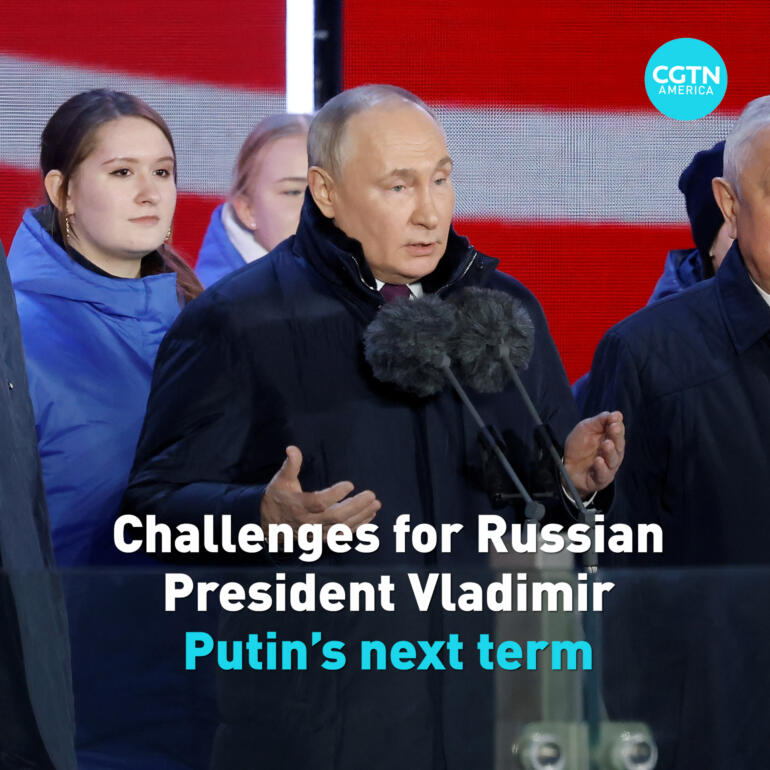
Russian President Vladimir Putin has won another term as the nation’s leader after a landslide victory in the presidential elections.
During his next term, Putin has said he plans to carve out a buffer zone in Ukraine to protect Russia from cross-border shelling and attacks.
See what other challenges Putin is expected to face over the next six years.
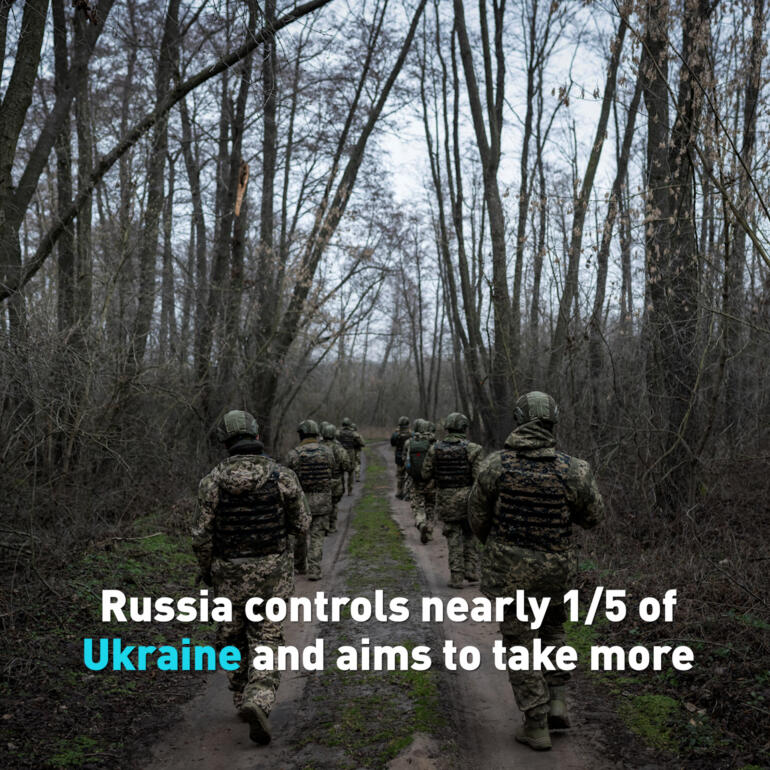
Russia controls nearly 1/5 of Ukraine and aims to take more
Ukraine: Russia controls nearly 1/5 of Ukraine, which has changed little since late 2022.
Putin has not defined his territorial goals but his ally Dmitry Medvedev said in February that Russia aimed to take more of Ukraine, including Odesa and eventually Kyiv, Reuters reports.
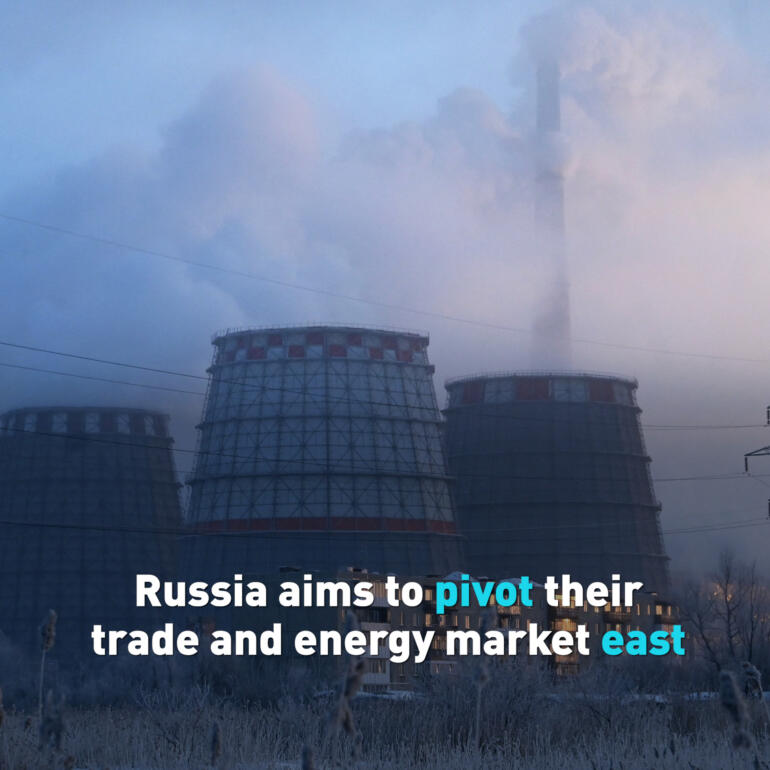
Russia aims to pivot their trade and energy market east
Trade and energy: Russia has lost parts of the European energy market because of sanctions and the blowing-up of the Nord Stream gas pipelines.
Russia is working to pivot their trade routes east, which depend on the progress of three major projects.
A new “gas hub” in Turkey, the Power of Siberia 2 pipeline, which will bring Russian gas to China via Mongolia, and the expansion of the Norther Sea Route, which is being made possible by the melting of Arctic sea ice.
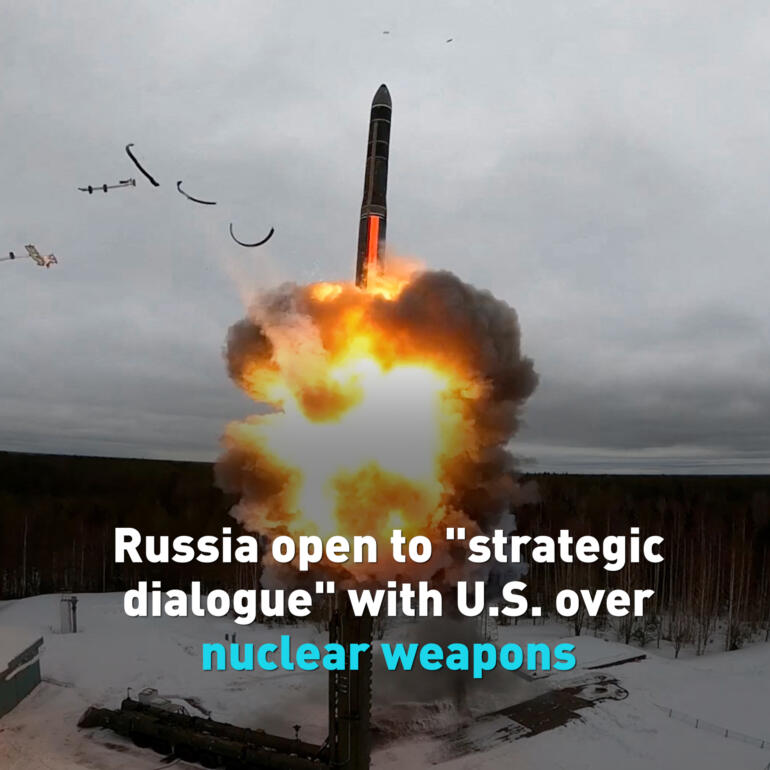
Russia open to “strategic dialogue” with U.S. over nuclear weapons
Nuclear weapons: The New START treaty, which limits the number of strategic nuclear weapons that Russia and the U.S. can deploy is due to expire in February 2026.
If it lapses, both nations can expand their nuclear arsenals.
Russia says they are ready for “strategic dialogue” with the U.S. but it must include all issues affecting its security, including Ukraine.
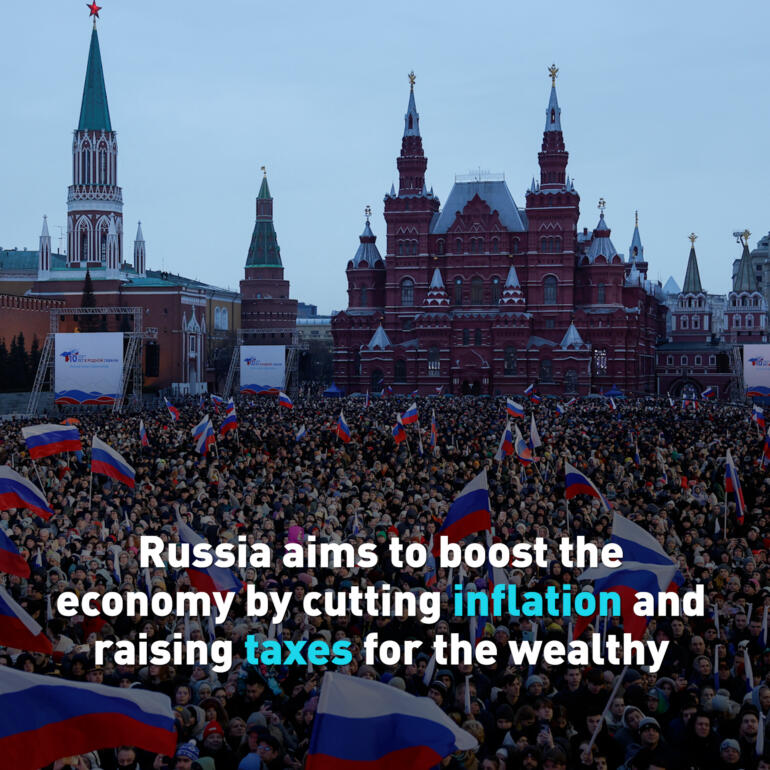
Russia aims to boost economy by cutting inflation and raising taxes for the wealthy
Domestic economy: Russia’s economy grew 4.6% year-on-year in January, due to an increase in military production, but labor shortages and low productivity remain an issue.
The government’s near-term priorities are to cut inflation, running at 7.6% and reduce budgetary strains.
Putin has indicated he plans to cut inflation by raising taxes for the wealthy.
 CGTN America
CGTN America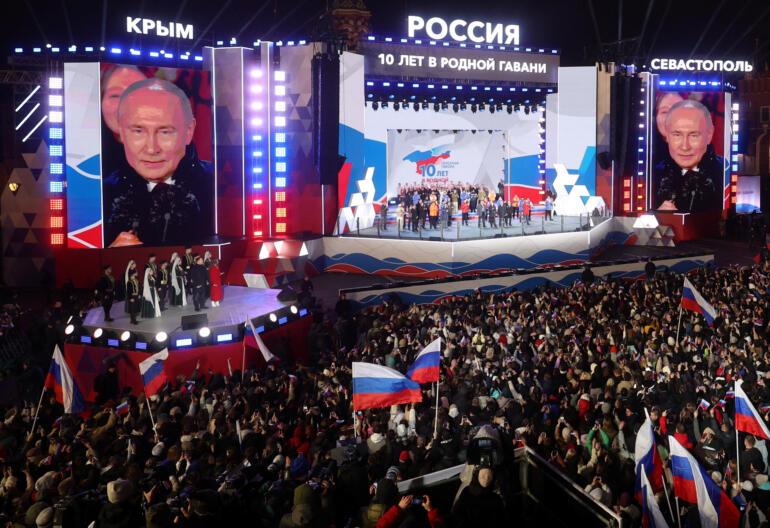 Russian incumbent President Vladimir Putin, who was declared winner of the presidential election by the country’s electoral commission, is seen on screens on the stage as he attends a rally, which marks the 10th anniversary of Russia’s annexation of Crimea from Ukraine, in Red Square in central Moscow, Russia, March 18, 2024. Sputnik/Gavriil Grigorov/Kremlin via REUTERS ATTENTION EDITORS – THIS IMAGE WAS PROVIDED BY A THIRD PARTY.
Russian incumbent President Vladimir Putin, who was declared winner of the presidential election by the country’s electoral commission, is seen on screens on the stage as he attends a rally, which marks the 10th anniversary of Russia’s annexation of Crimea from Ukraine, in Red Square in central Moscow, Russia, March 18, 2024. Sputnik/Gavriil Grigorov/Kremlin via REUTERS ATTENTION EDITORS – THIS IMAGE WAS PROVIDED BY A THIRD PARTY.
